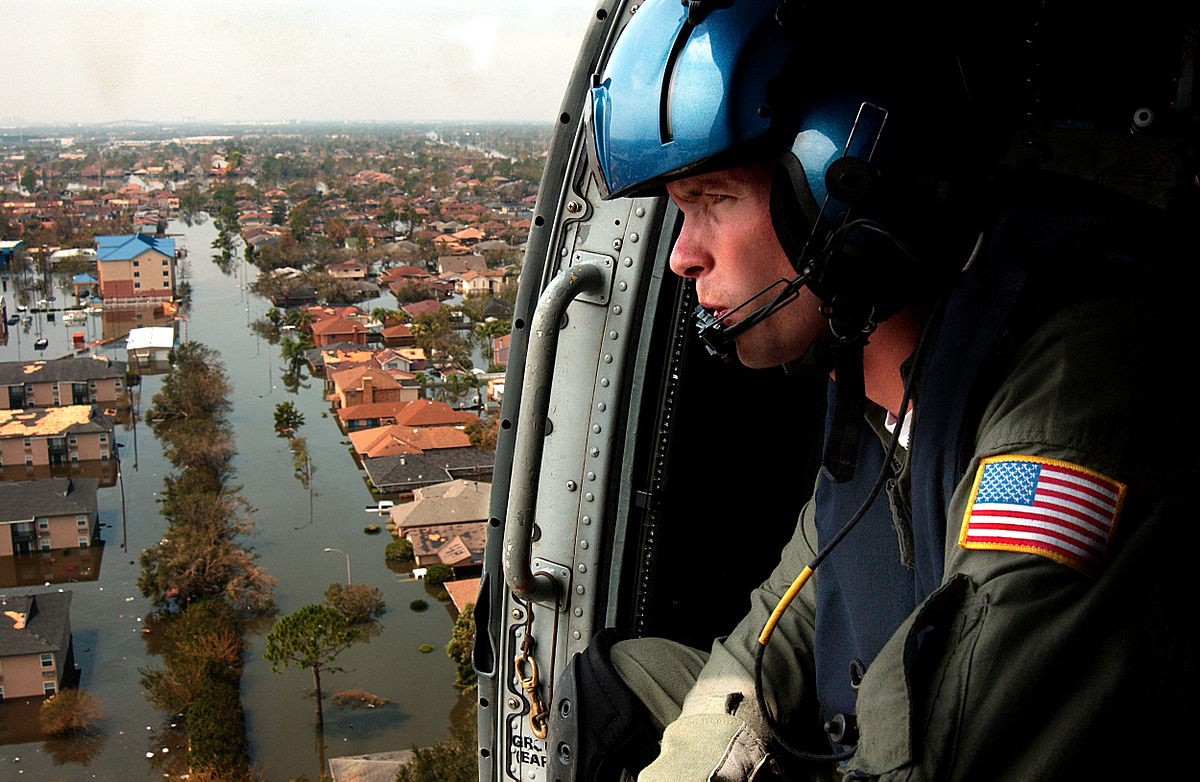 Photo Courtesy: Petty Officer 2nd Class NyxoLyno Cangemi
Photo Courtesy: Petty Officer 2nd Class NyxoLyno Cangemi
Event Recap: Pandemics and Climate Change
On June 30th, the World Affairs Council of Charlotte (WACC) hosted American Security Project (ASP) Consensus for American Security member Major General Rick Devereaux, USAF (Ret.) for a webinar discussion on the national security threats posed by climate change. Mike Hawley—board member and former Director of WACC—moderated the discussion.
General Devereaux began by discussing the different ways climate change affects the U.S. military. First, climate change has changed the types of missions the military performs. For instance, climate change has increased the number of humanitarian assistance and disaster relief missions for the military. General Devereaux also highlighted the effects climate change has on the nation’s military installations. Citing a recent Department of Defense report of the country’s most critical military facilities, General Devereaux highlighted several military installations that have already been affected by climate change, such as Camp Lejeune, Tyndall Air Force Base, and Offutt Air Force Base, among others.
General Devereaux concluded the first part of his talk by discussing how the military’s reliance on fossil fuels creates a logistical burden and vulnerability. He emphasized that climate change, as a result of carbon emission from fossil fuels, will continue to be a “threat multiplier” in the years to come.
In the second part of his talk, General Devereaux discussed the connection between climate change and pandemics, like COVID-19. The General noted that a changing climate will force people to migrate to rapidly expanding cities in search of food, water, and jobs. As cities expand into natural areas, people will increasingly come in contact with animals that may carry disease. Infected people will more easily spread disease in crowded cities, increasing the likelihood of more pandemics in the future.
In the Q&A portion of the talk General Devereaux answered a variety of questions. Most notably, in response to a question on the military’s current fossil duel use General Devereaux responded that the military’s transition to cleaner energy is non-trivial and will require innovative solutions. The General cited electric generators and more strategic vehicle use as good initial steps. When asked about China’s role in climate change, General Devereaux responded that the US’s decision to leave the Paris Climate Agreement created a vacuum that China is attempting to fill. General Devereaux ended by noting that the military must do a better job in strategically planning for the future effects of climate change.
Please watch the video of General Devereaux’s presentation for more information on the national security implications of climate change and pandemics.





